UK

USA
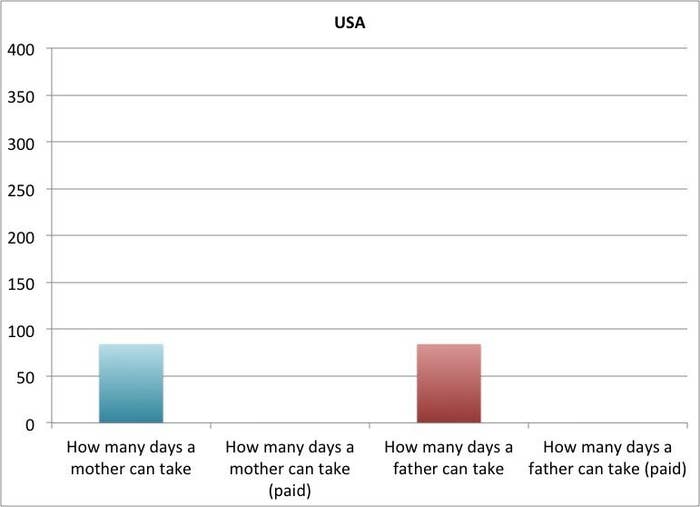
Australia
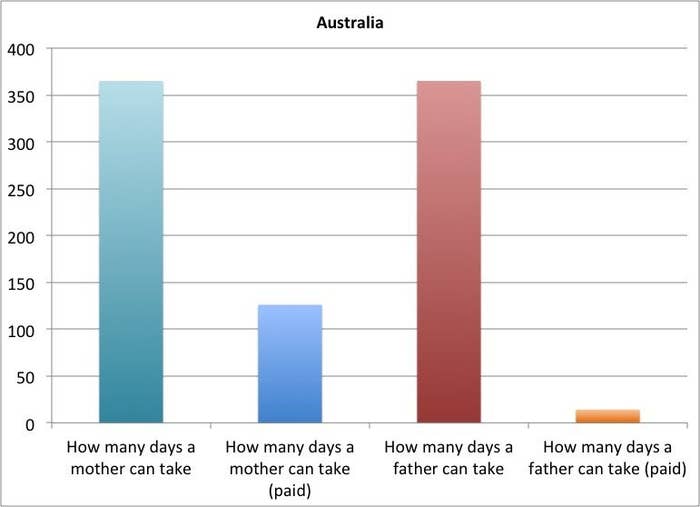
Canada

France
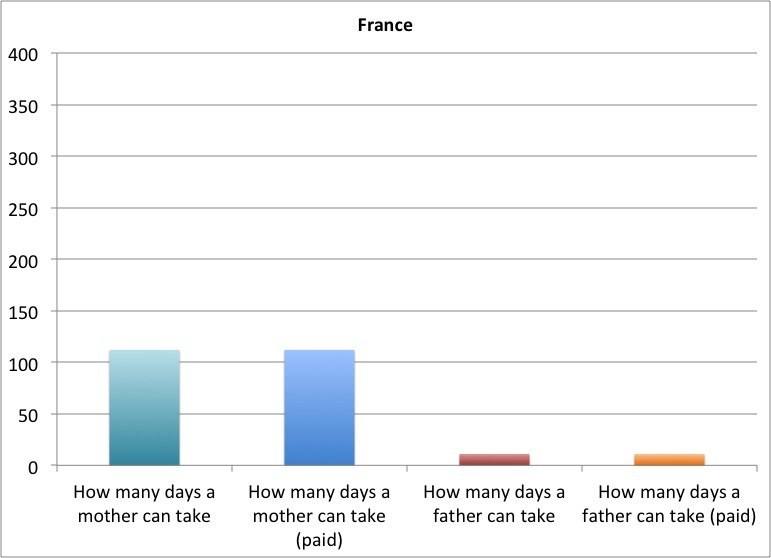
Brazil

Israel

India
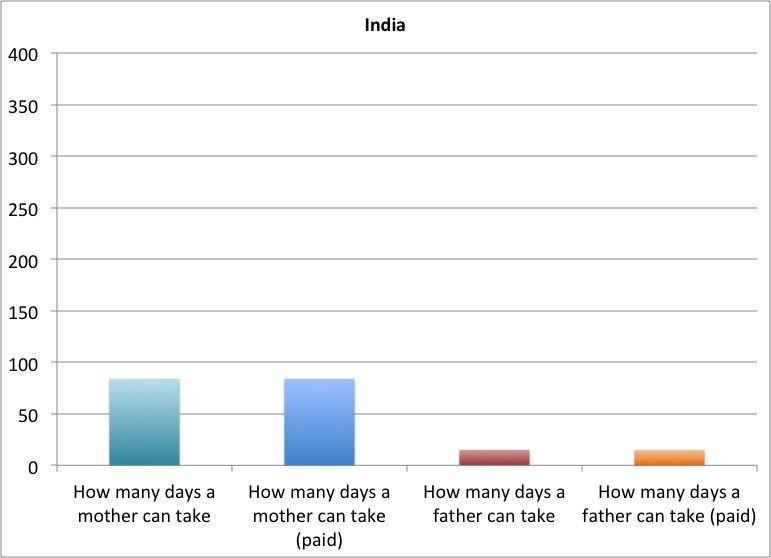
Mexico

The Netherlands

Iceland

Italy

Croatia
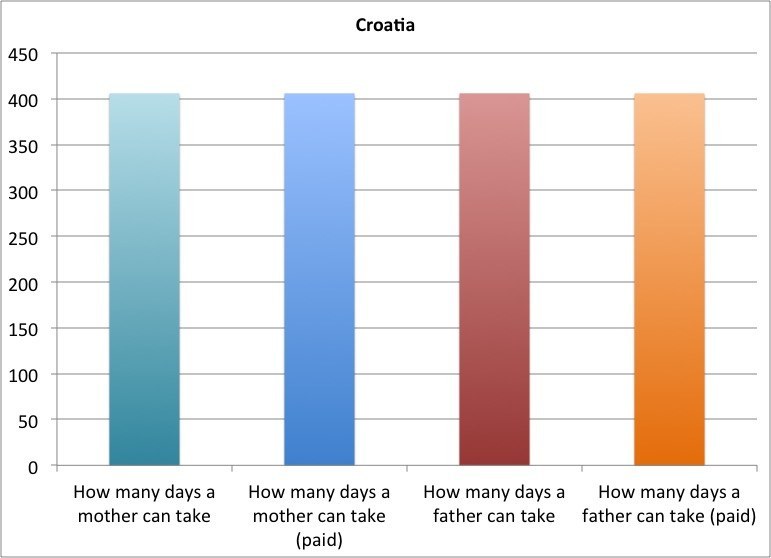
Norway

Sweden

Denmark

Germany

Russia
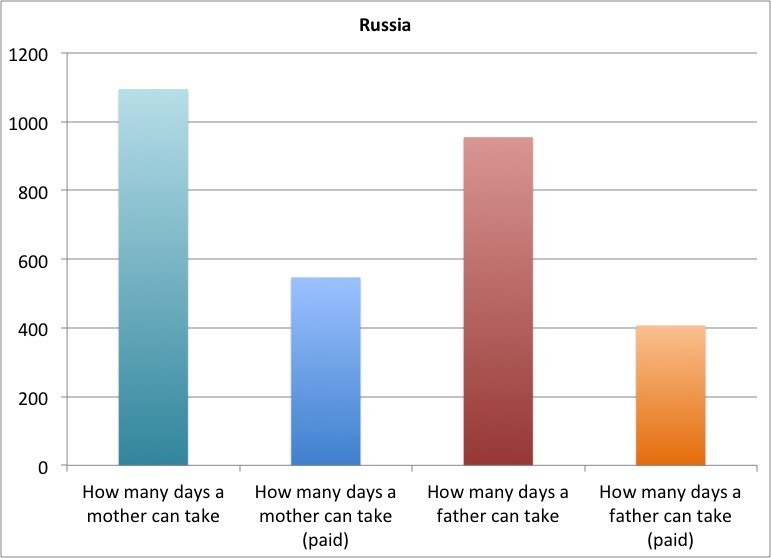
Let's look at how those countries compare. Here's how many days of leave mothers are legally allowed to take – whether paid or unpaid.
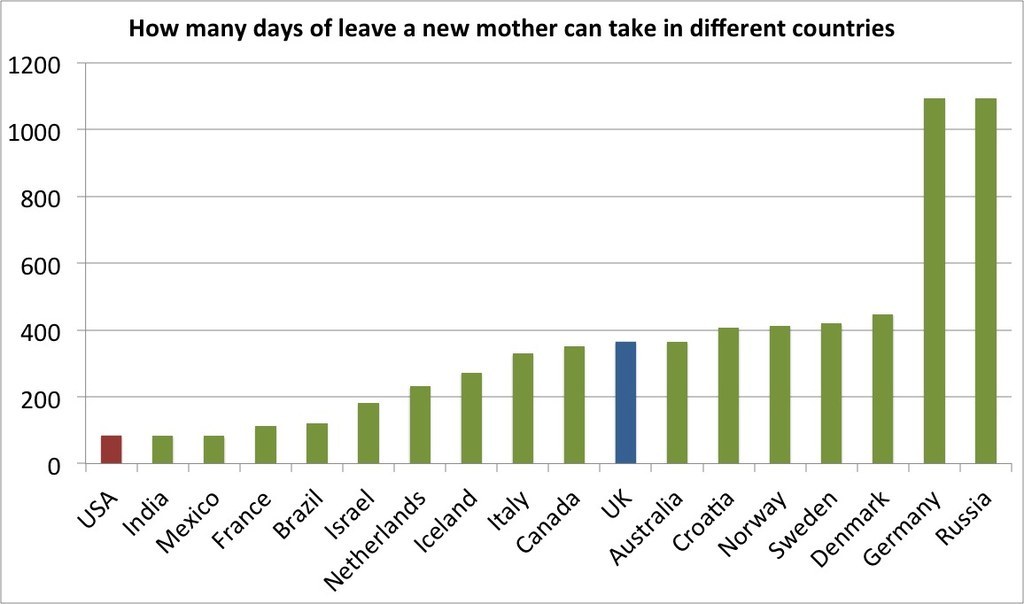
And here's that figure again, plus how many days of paid leave mothers can take.

Here's how much leave new fathers can take, whether paid or unpaid, including all leave that can be shared between both parents.

And here's that figure again, now including paid leave.
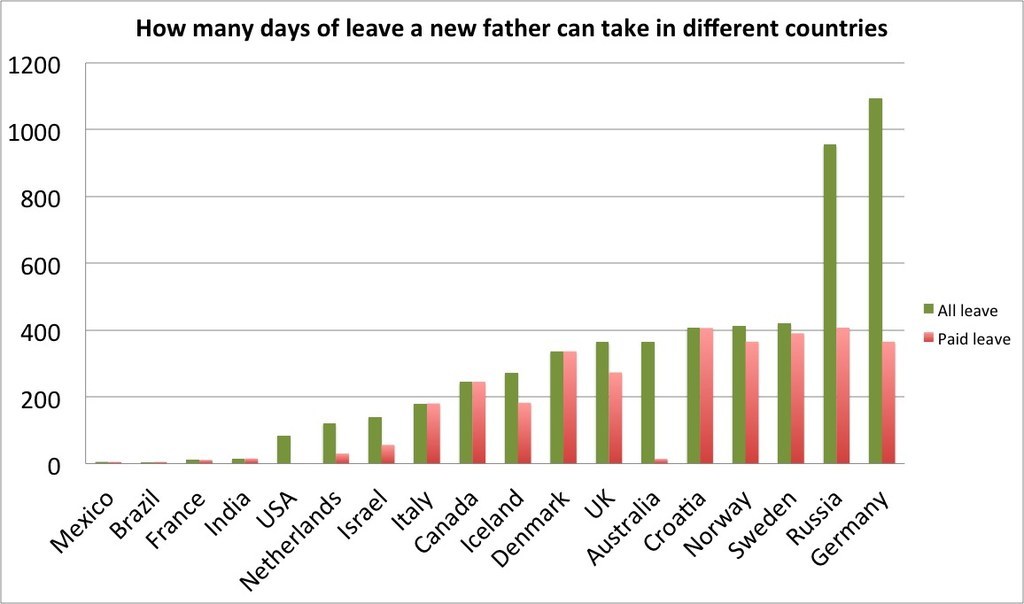
Some observations:
• The USA is the only country in the developed world not to have any mandatory paid leave for mothers.
• Until 1993, it had no federal requirement to offer unpaid leave either.
• Every European country we looked at allows parents to split some or all of their leave between them. (In France, this only applies to parents who've worked for a year or more at a company before the birth.)
• Sweden and Iceland offer long breaks (two and three months respectively) that are exclusively for fathers and cannot be transferred to the mothers. In Sweden, these "daddy months" have been found to increase the father's participation in childcare.
• Sweden and the Netherlands allow part of the parental leave to be taken at any point until the child's eighth birthday. Germany and Russia allow any amount of leave to be taken up to the child's third birthday. Most other countries only allow time off work in the first year of parenthood.
NOTE: In some countries, "paternity" pay and leave applies to same-sex female partners as well as fathers, and some countries issue maternity leave and pay to the primary caregiver rather than the biological mother. For simplicity, we've referred to both as paternity/maternity and father/mother.
